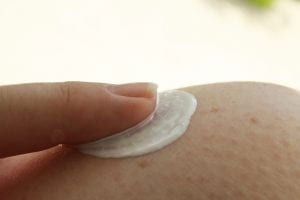Currently, most treatments for scleroderma, a group of conditions causing the hardening of skin and connective tissue, are symptomatic. That is, they treat symptoms but not the underlying cause of the conditions. However, clinical-stage cell and gene therapy company Castle Creek Biosciences (“Castle Creek”) is looking to change that with its investigational gene therapy candidate FCX-013. Earlier this week, Castle Creek announced that the first patient was dosed in the Phase 1/2 clinical trial to evaluate FCX-013 as a treatment for patients with moderate-to-severe localized scleroderma.
FXC-013
Developed by Castle Creek Biosciences, FCX-013 is a gene therapy designed to treat patients with more severe cases of localized scleroderma. This genetically-modified autologous fibroblast is delivered via lentivirus. It delivers functional matrix metalloproteinase 1 (MMP-1), which helps to break down collagen. As a result, it can address hardened patches of skin caused by scleroderma and relieve painful symptoms by reducing collagen. Currently, FCX-013 is administered intradermally and injected specifically into areas of localized scleroderma.
The Phase 1/2 trial will evaluate the safety, efficacy, and tolerability of FCX-013. Its primary objective is to determine the safety. However, the study will also analyze symptom maintenance. Up to 10 patients will enroll. Outside of the trial, FCX-013 received Fast Track, Orphan Drug, and Rare Pediatric Disease designations.
Scleroderma
Altogether, scleroderma refers to a group of conditions which cause the hardening and stiffening of skin and connective tissues. Scleroderma is either localized (only found in a few areas, usually does not spread) or systemic (found in many areas of the body, can involve skin and other organs). Localized scleroderma is typically milder than systemic scleroderma. However, an estimated 50,000 American patients have more severe cases of localized scleroderma. The condition occurs from excess collagen production. However, doctors are unsure what stimulates this production.
Scleroderma causes hard, tight patches of skin. Other symptoms may include:
- Acid reflux
- Improper nutrient absorption
- Loss of heart, lung, or kidney function
- Exaggerated response to cold temperatures or emotional distress
- Numbness or pain in the fingers and toes
Currently, scleroderma treatments center around anti-inflammatories, corticosteroids, and physical therapy. No FDA-approved treatments exist for moderate-to-severe scleroderma.
Learn more about scleroderma.






